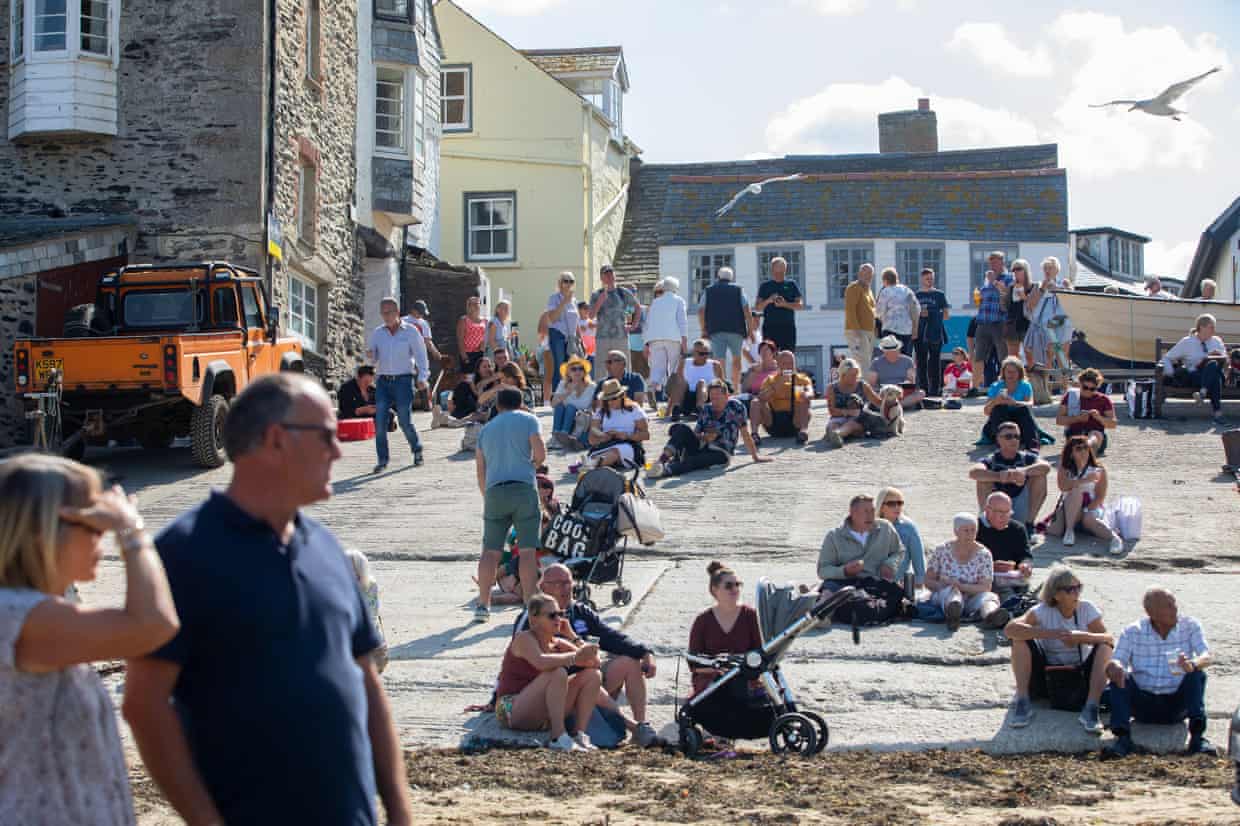
Cornwall
'No sex, no violence, just a laugh': mixed emotions in Cornish village as Doc Martin ends
TV series lured fans from all over the world to Port Isaac, bringing jobs and money, but critics complain it created a circus
by Steven MorrisThe sun shone and the Atlantic glistened as hundreds, perhaps thousands, of Doc Martin pilgrims wound their way down the steep lanes to the Cornish harbourside.
They sought out the spots in the fishing village of Port Isaac that feature in the long-running British ITV comedy drama series and took selfies outside the houses and shops they knew so well from the show.
The lucky ones – it was extremely busy – managed to get a table in the waterside pub the Golden Lion, transformed into the Crab and Lobster for the drama.
This autumn there is also a touch of melancholy, a sense of the end of something in Port Isaac, which has been the setting for the show – and arguably its biggest star – for the best part of two decades.
The makers have announced that the programme, which first aired in 2004, is coming to an end. Cast and crew will arrive in Cornwall in the spring, as long as the Covid crisis allows, but then no more. “I just think we’ve sort of done everything,” said Martin Clunes, who plays the cantankerous GP.
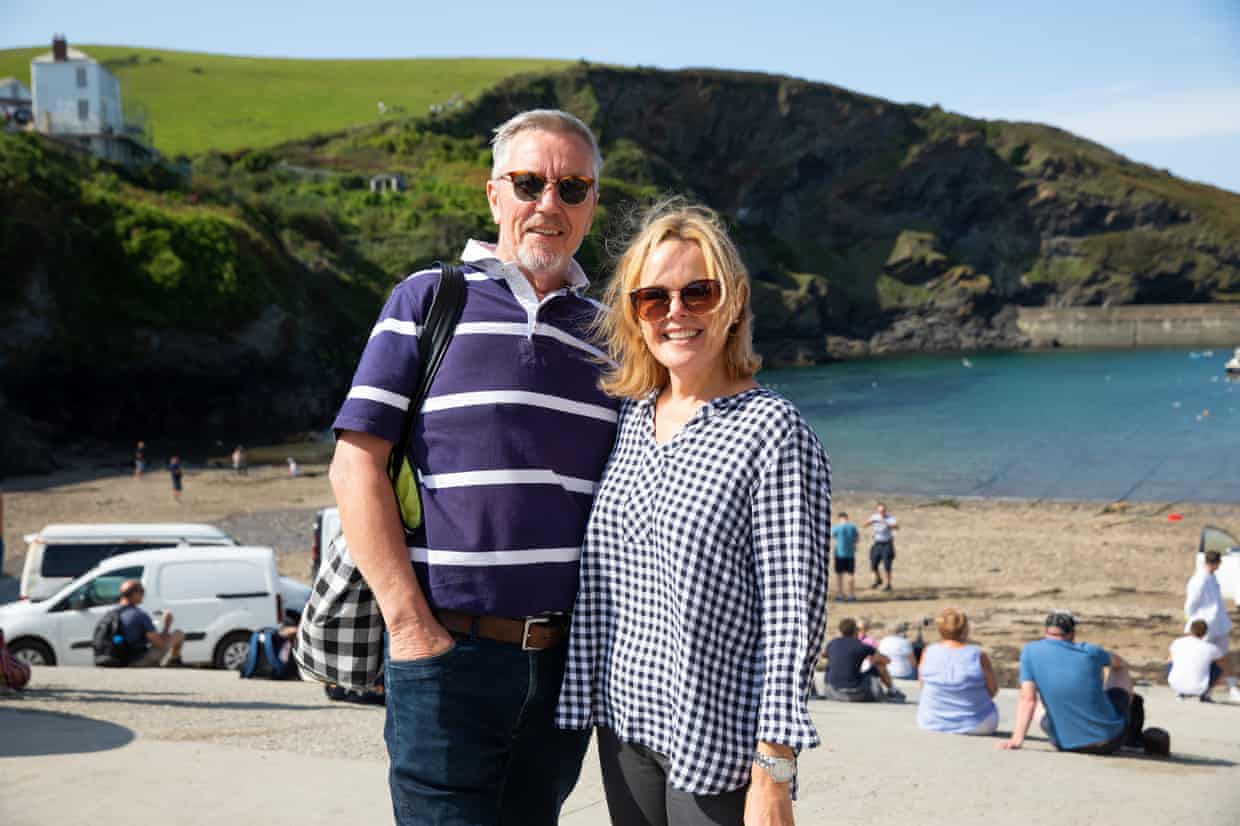
“It is sad,” said Dorothy Tong, from Fife in Scotland, who was taking in Port Isaac as part of a September tour of Cornwall. Land’s End was disappointing. “A bit tacky. But Port Isaac has lived up to expectations. I’ve seen all the Doc Martin episodes. I’ll miss it when it’s gone.”
Gary and Helen Court, from north Wales, were similarly enchanted by Port Isaac. They drove down to Cornwall via another spot used as a set for another television favourite: Highclere Castle in Hampshire, better known to fans of historical drama as Downton Abbey. “We like a bit of escapism,” said Helen.
Port Isaac resident Dave Morgan, a retired police detective, was to be found leading a guided Doc Martin tour. He has appeared as an extra in eight of the nine series filmed so far.
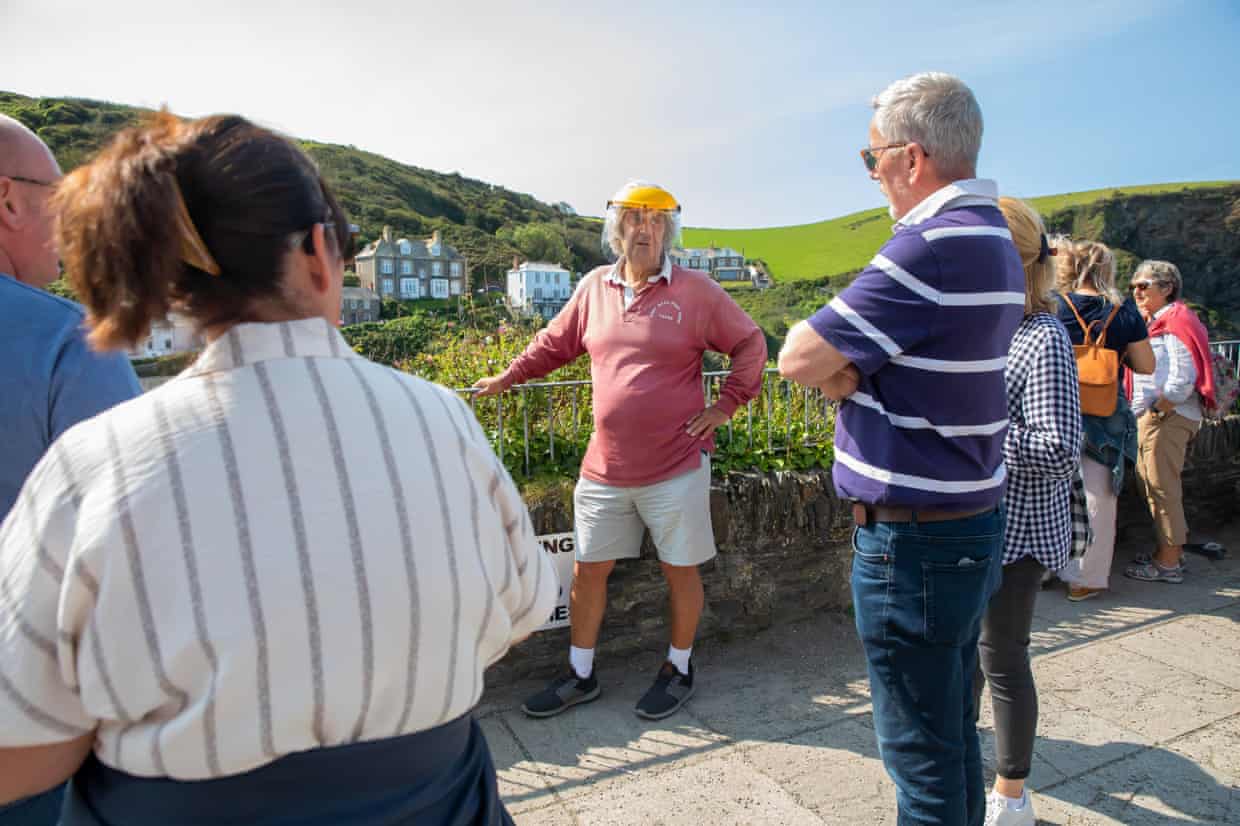
Morgan is proud to have beenpart of it from the start, playing one of the panel that interviewed the Clunes character for the job of GP in the fictional village of Portwenn.
He also once had a line and recites it proudly: “Wadebridge? I haven’t got a car”, during an episode when the village surgery was under threat (Wadebridge is a town eight miles from Port Isaac).
“I think the show works because there’s no sex, no violence. It’s just a laugh,” he said.
Morgan’s tour was very detailed. He pointed out the fudge and ice cream shop that doubles as a pharmacist, a house that featured in an episode in which a villager had a seal in the bath (“I don’t know what the fuss was, we all have a seal in the bath”), even the public toilets where Doc Martin carried out an examination of a patient with “trouble down below”.
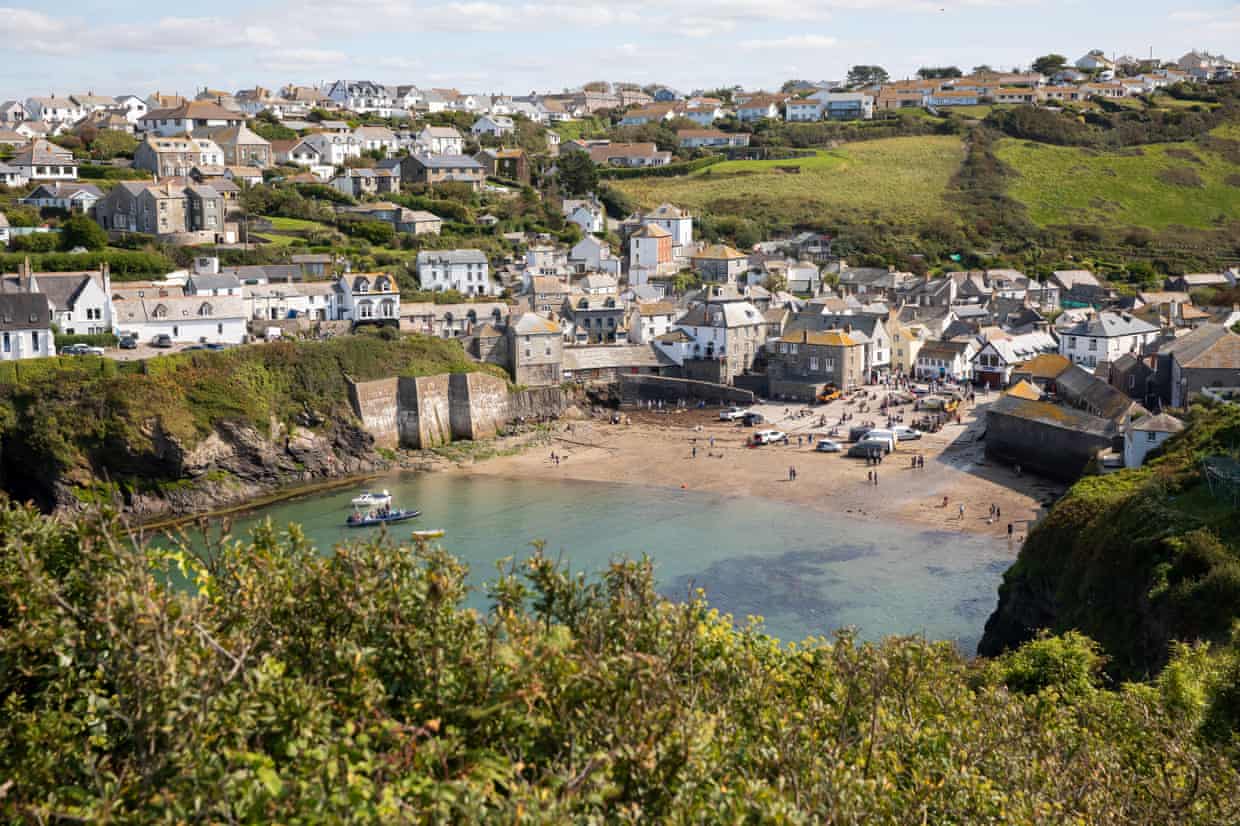
Of course, the village existed before Doc Martin. Morgan also highlighted a spot where John Wesley preached and the street where fishermen used to boil bark to make a preservative for their nets.
Nor does he shy away from a tricky issue. The popularity of Cornish seaside villages like Port Isaac has led to an influx of second home owners.
Morgan said he was the only permanent resident left in his street. Doc Martin’s house, which could be a lovely family home, is a holiday let. Most locals have moved out of the heart of the village and live in less picturesque houses on the hill above.
There can be little doubt that Doc Martin has brought money to Port Isaac. Coach tours for American tourists pause in Bath, Plymouth - and Port Isaac. One shop, May Contain Nuts, has shelves packed with Doc Martin souvenirs – key-rings, mugs, fridge magnets. A farmer’s field becomes an overspill car park.
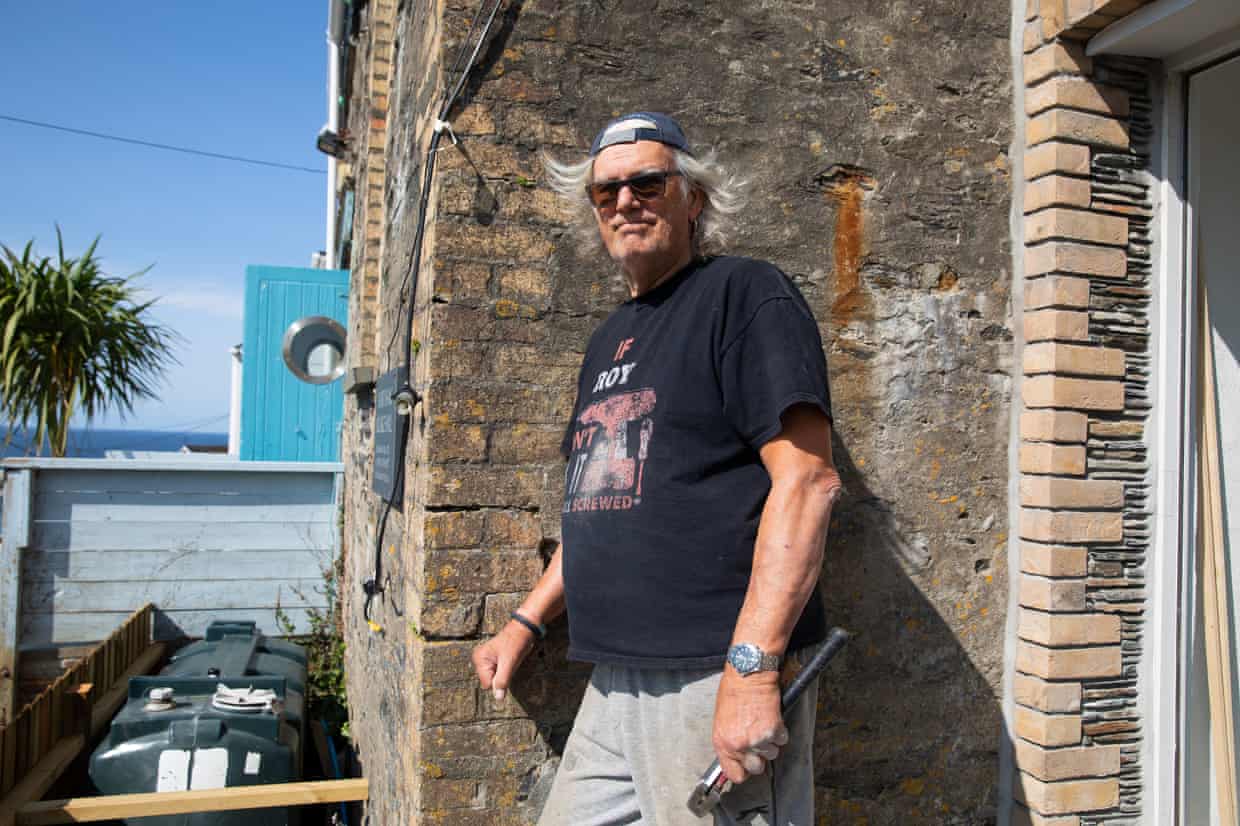
Roy Speakman, a 73-year-old carpenter, was working at the village hall. He is employed on the show as “standby chippy” when filming takes place. “There are some militants who think it’s a bad thing for the village but it brings in money and jobs.”
Some of the worldwide profits of the show are donated to local causes, such as a stairlift to help people with disabilities get into the hall. “They do a lot of good.”
But there are critics of the circus Doc Martin has created.
John Collins, who runs a fish merchant’s in an old pilchard-curing cellar, said it had done little for his business. “The visitors have a cup of tea and a scone. They don’t come and buy fish from me,” he said. “The crew and cast are good as gold but they block the streets up. It’s hard to get deliveries out when they’re here.”
He does not believe the show’s end is near. “They’ve been saying that for years,” he said, “I’ll believe it when I see it.”